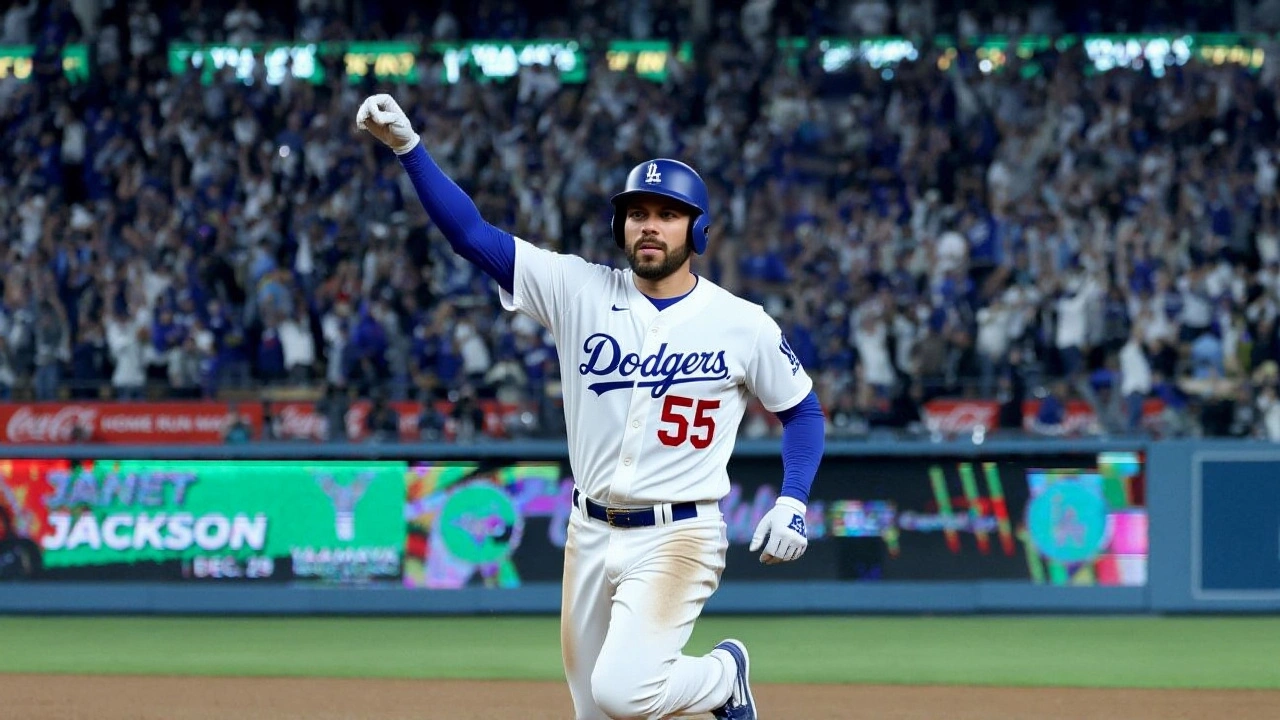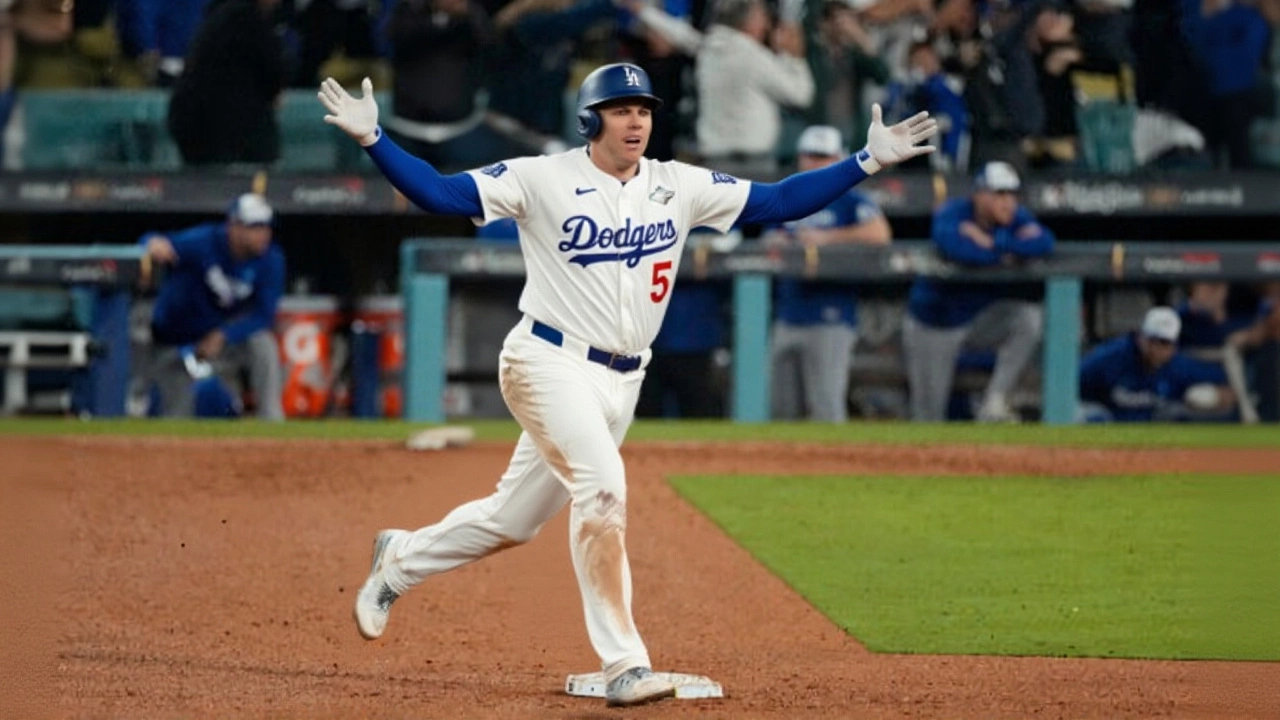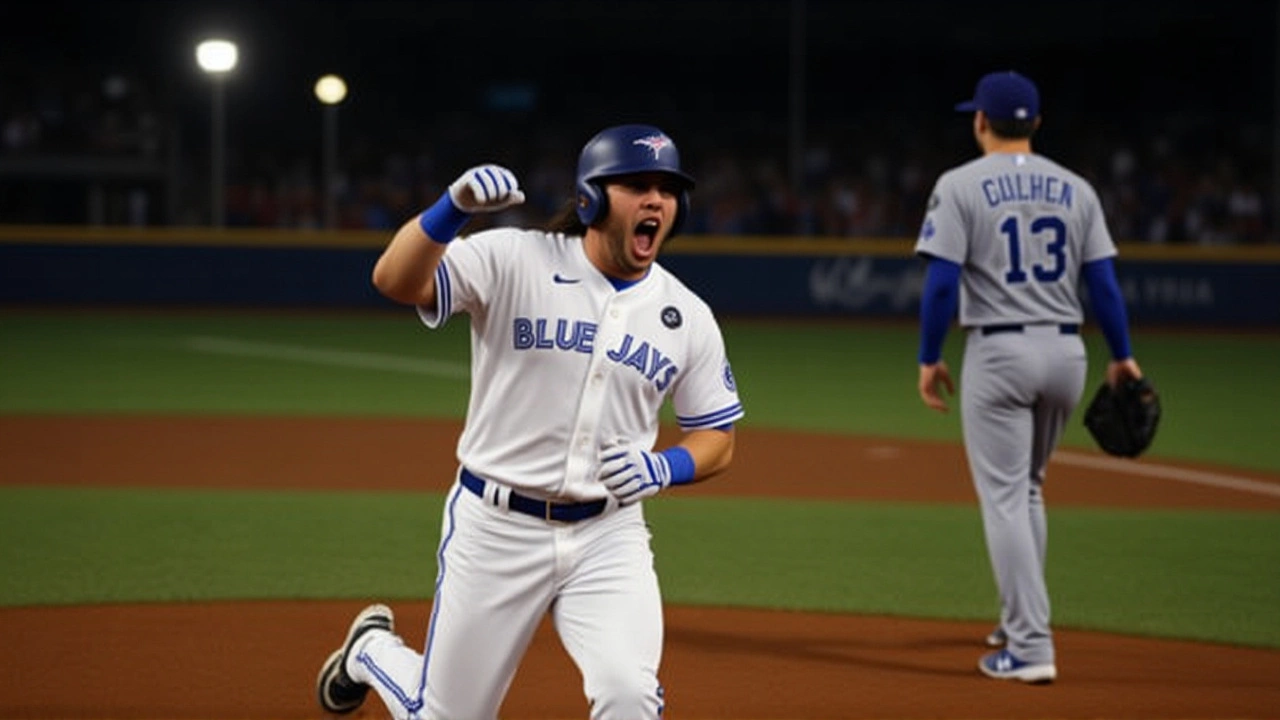Freddie Freeman’s 18th-Inning Homer Wins Game 3, Dodgers Lead Blue Jays 2-1 in World Series

Oct, 28 2025
When Freddie Freeman stepped to the plate in the bottom of the 18th inning on October 27, 2025, with the score tied 5-5 and the crowd at Dodger Stadium holding its breath, he wasn’t just facing a pitcher—he was facing history. One swing later, the ball cleared the center-field fence at 405 feet, sealing a 6-5 victory for the Los Angeles Dodgers over the Toronto Blue Jays in the longest Game 3 in World Series history. The marathon contest lasted 6 hours and 39 minutes, featured 19 pitchers, and saw 609 pitches thrown—tying the 2018 World Series Game 3, also played at Dodger Stadium, for the longest in series lore. Freeman’s solo shot off Brendon Little wasn’t just a game-winner; it was his 19th career walk-off homer, the most by any active player in Major League Baseball.
When the Game Outgrew the Clock
It wasn’t just the length that made this game unforgettable—it was the rhythm. The kind of baseball that makes you forget your coffee’s gone cold. Inning after inning, both teams traded blows, pitchers dug deep, and fans refused to leave. The Blue Jays tied it in the top of the 17th on a two-out single by Oscar Hernandez, who then left the game moments later with an oblique strain. That injury, as manager John Schneider later admitted, “could ripple through the rest of the series.” Even mild oblique injuries can sideline players for weeks, and Hernandez had been Toronto’s most consistent hitter since Game 1.Ohtani’s Unthinkable Night
But here’s the twist: Freeman’s walk-off almost made people forget what came before it. Because before the 18th inning, Shohei Ohtani had already rewritten the record books. He reached base nine times—four hits, five walks—becoming the first player ever to do so in a postseason game. He smashed four extra-base hits, joining Frank Isbell of the 1906 Chicago White Sox as the only two players in World Series history to accomplish that. And then there were the intentional walks: four of them. Four. In one game. In the World Series. No one had ever been pitched around that many times in a single postseason contest. Ohtani didn’t even pitch that night—he was scheduled for Game 4. He was just hitting. And hitting. And hitting.The Pitch That Changed Everything
Little, a 25-year-old lefty with a 92.4 mph sinker and a 2,065 rpm spin rate, had been lights-out all postseason. He’d allowed just one run in his last 11 innings. But on that 3-2 count, he came in with his bread-and-butter pitch—a heavy, sinking fastball low and inside. Freeman, who had already gone 3-for-6 with two doubles, didn’t chase. He waited. And when it came in, he crushed it with a 107.4 mph exit velocity and a 34-degree launch angle. The ball didn’t just clear the fence—it cleared the expectations. Fans in the upper deck stood silent for a beat, then erupted. The Dodgers’ dugout emptied. Freeman didn’t even smile. He just jogged, as if he’d done this a hundred times before.
Why This Matters
This wasn’t just another October classic. It was a defining moment in a generation of baseball. The Dodgers now lead the series 2-1, and the momentum is theirs. But the Blue Jays aren’t done. Their bullpen held firm for 12 innings before Little’s mistake. Their offense, led by Vladimir Guerrero Jr. and Bo Bichette, kept clawing back. And now, with Hernandez potentially out, Toronto’s lineup takes a hit. Meanwhile, Ohtani’s performance—statistically the greatest by a position player in a single World Series game—has turned him into a legend before the series is even over.What’s Next?
Game 4 looms on October 28, with Dodgers ace Tyler Glasnow set to face Blue Jays ace Alek Manoah. But the real question isn’t who pitches—it’s who can still swing the bat. Ohtani’s body is a marvel, but nine plate appearances in one game? That’s a toll. And Freeman? He’s now the most clutch player alive. If the Dodgers win, his name will be etched beside Kirk Gibson and Joe Carter. If they lose? This game still becomes legend. Because sometimes, baseball doesn’t care about the odds. It just cares about the moment.
Background: The Legacy of Long Games
The 2018 World Series Game 3 between the Dodgers and Boston Red Sox also went 18 innings, lasting 7 hours and 20 minutes—longer than this one, but with fewer pitches. The 1986 World Series Game 6, infamous for Bill Buckner’s error, lasted 16 innings. But none featured the kind of dual-stardom spectacle we saw Tuesday. Ohtani’s nine times on base? The last player to reach base that many times in any MLB game was Ichiro Suzuki in 2004. Freeman’s 19th walk-off? That’s more than Derek Jeter, Miguel Cabrera, and Mike Trout combined.Frequently Asked Questions
How rare is a walk-off home run in the 18th inning of a World Series game?
It’s never happened before. This was the first walk-off home run in the 18th inning or later in World Series history. The longest previous walk-off in a World Series game was a 15th-inning single by Luis Gonzalez in 2001. Freeman’s homer broke new ground in both timing and drama.
Why was Shohei Ohtani intentionally walked four times?
Blue Jays manager John Schneider knew Ohtani was the only hitter capable of single-handedly changing the game. With runners on base, pitching to him risked a grand slam. With the bases empty, he still posed a threat: Ohtani had hit .421 with 1.350 OPS in the postseason. Four intentional walks were a desperate, calculated gamble—and it still didn’t work.
What impact does Oscar Hernandez’s injury have on the Blue Jays’ chances?
Hernandez was Toronto’s most consistent hitter in the series, batting .385 with three doubles and five RBIs. His oblique strain could sideline him for 10–14 days, forcing the Jays to insert a defensive replacement like Lourdes Gurriel Jr. into the lineup—someone who doesn’t match Hernandez’s offensive firepower. That’s a major blow to their scoring depth.
Is Freddie Freeman the most clutch player in baseball right now?
Based on October performances, yes. He’s now hit walk-off homers in Games 1 and 3 of the 2025 World Series, both at Dodger Stadium. His 19 career walk-offs are the most among active players, and his postseason OPS is 1.124. He doesn’t just deliver—he delivers when the stakes are highest, making him the modern-day embodiment of clutch.
Could this game be the greatest in World Series history?
It’s already in the conversation. No game in World Series history has combined a record-setting individual performance (Ohtani’s nine times on base) with a historic walk-off (Freeman’s 19th) in the longest Game 3 ever played. Add in the injuries, the pitching depth, and the emotional weight—and it’s not just great. It’s generational.
What’s the record for most pitches in a single World Series game?
The 609 pitches thrown in Game 3 of the 2025 World Series are the most ever recorded in a single World Series game, surpassing the 587 pitches in the 2018 Game 3. The 2025 contest also set a new record for most pitchers used in a World Series game: 19 total (10 for the Dodgers, 9 for the Blue Jays).